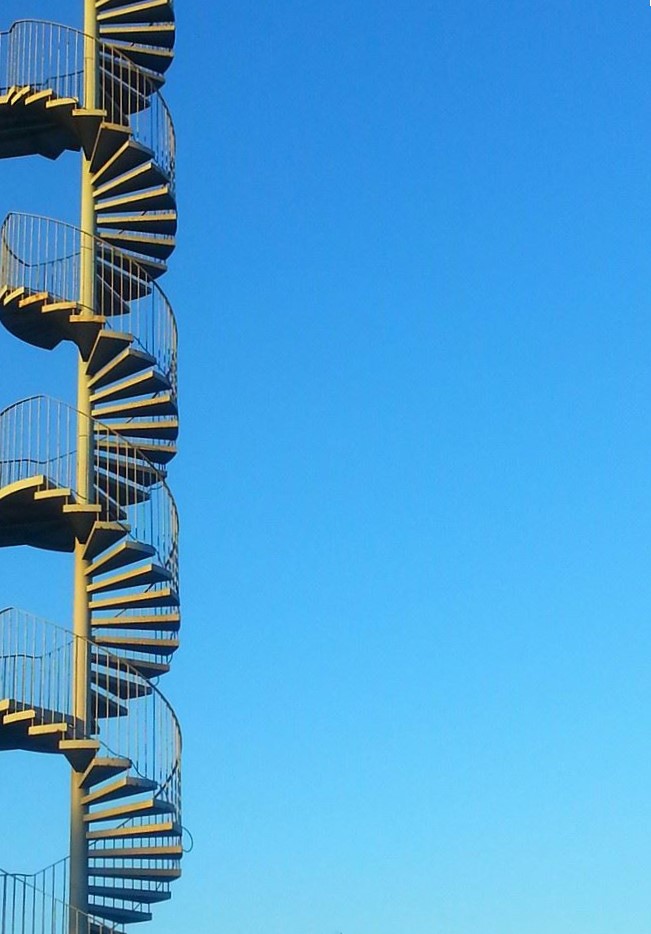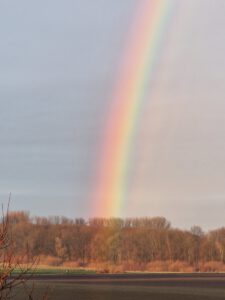No man is an island,
Entire of itself;
Every man is a piece of the continent,
A part of the main…
John Donne (1572–1631)
Mother, I tried, please believe me
I’m doing the best that I can.
I’m ashamed of the things I’ve been put through
I’m ashamed of the person I am.
Isolation, isolation, isolation…
Joy Division, Isolation – 1980
Lonely, lonely, lonely, lonely,
A story with a middle only.
Paul Durcan
Attention is the rarest and purest form of generosity.
Simone Weil
An insight shook me to the core this week. It was the realisation that there was absolutely nobody to whom I could turn in my childhood privation. That feeling of being utterly alone felt both extremely hazardous and very familiar.
Beneath the abandonment, the anxiety, the alienation, the dread, and the shame, lay the trauma of having nobody in the wide world into whose lap I could crawl for affection, safety, and refuge.
These are the simple facts as I remember them. How this state of isolation came about is a matter of conjecture.
My intention here is not to apportion blame for the fact that a young child can become trapped in a state of isolation at a very early age. The dilemma unfolds as the product of a combination of adverse external circumstances and how the innocent child, equipped only with primitive resources, reacted in a manner which appeared to offer the greatest probability of survival.
That is one of the great marvels of evolution; we swiftly develop reactions which promise protection from perceived hostility and adaptations which promise to, and usually do, keep our heads above water.
Only later in life, having developed capacities which enable considered responses, can we move beyond primitive reaction to considered response. In a nutshell, we call this `growing up´. In favourable circumstances, we are mentored, mainly by means of the behaviour modelled by our caregivers, to accomplish such development by the time we reach late adolescence. Where adversity reigns, progress may be slower or, for the time being, entirely sabotaged.
Intuition tells me that such extreme estrangement begins on the inside and radiates outwards, eventually to encompass the entirety of Creation. It must, therefore, begin with the struggle of establishing a sense of self, when we begin to realise that Mother and I are no longer one.
Which brings us to the great paradox: The way towards recognition of our `one-ness´ with all of Creation takes us first to individuation, to the realisation that we are apart from those around us.
If this were handled in a conscious, aware, and lovingly kind manner, the child could perhaps feel at ease in this field of tension of apparent opposites. I am separate, and yet not separated. In my individuality, I still belong and am cherished by the Universe that produced me.
However, anyone who has raised children will be aware of the everyday stresses that can throw us off kilter, thereby diminishing our capacity, as the caregivers of young children, to remain deeply connected to self and our loved ones in the heat of the moment. We react harshly to the cries of the hungry infant, get caught up in quarrels with our partners, and/or beat ourselves up for failing to meet the high standards of parenting we have set ourselves.
The adult may develop a sense of shame due to not meeting her own aspirations. The child, on the other hand, who is suffering privations (or worse, in some cases even abuse) is confronted with the unbearability of perceived neglect or abandonment and is perplexed as to why this is happening.
A reasonable explanation would state that the parents are not capable of meeting her needs, emotional, physical, spiritual. This prospect is too much to bear for a young person still fully dependent on these parents.
The root cause is therefore identified elsewhere. We find it within. The child concludes that the unloving treatment is the result of some flaw within herself. This may be supported by negative messaging from those about us. Feeling unworthy of the love and attention she so yearns, she begins to feel shame. The young child becomes ashamed of himself.
This shame is the cause of the rupture of our sense of belonging. We become internally ruptured, estranged from the truth of our own essence of pure love, and consequently begin to feel the same estrangement from those who would otherwise be experienced as `loved ones´, from our community, from society, and from the world of Nature.
Taking the bird’s-eye perspective, this would explain how we, as a species, have arrived at the point of jeopardising life on the planet through our self-centred actions. Were we truly connected (to ourselves, each other, and Creation), we would not, as a result of focusing on short-term material gains, drive other species to extinction, abuse billions of animals so cruelly to uphold unsustainable, outdated nutrition practices, and violate our nest through the proliferation of toxins in agriculture and industrial activities, as we are doing today.
Our current dilemma can only be explained as a manifestation of the global human dis-ease of isolation. `Philosophers call this state of isolation and disconnection “species loneliness” — a deep, unnamed sadness stemming from estrangement from the rest of Creation, from the loss of relationship’, as Robin Wall Kimmerer points out in her 2013 treatise on the awakening of a wider ecological consciousness, `Braiding Sweetgrass´.
The good news is that recovery is always possible. This has been demonstrated in countless cases of personal recovery from addiction since the mid 1930’s, initially in a fellowship which has become known throughout the world as Alcoholics Anonymous (AA). Countless fellowships have emerged since that time, all following the same Twelve Steps, to deal with addiction to other substances, to behavioural compulsions, and the general challenges of the human condition.
For the person afflicted by the disorder of compulsion, the initial primary focus in recovery must be the attainment of sustained abstinence. When the building is burning, it’s a good idea to get out!
The first cycle through the Twelve Steps helps countless, but not all, addicts achieve a position of neutrality with respect to the pertinent substance or addictive behavioural pattern. Some are content to remain here, while passing on what they have learned to others in need of alleviation.
Others are driven to dig deeper. Recognising that the addictive behaviour was initially a solution to an, as yet, undetermined problem (before it became yet another problem in itself) we excavate our lives in the hope of pinpointing what exactly we were trying to solve in the first place.
My explorations have brought me to that sense of isolation which pervaded my childhood. It seems strange to have felt so alone when surrounded by loving parents and so many wonderful siblings. There is no logical explanation. The issue is rather one of the heart. It is a matter both emotional and spiritual.
In the rear-view mirror, it is clear that my heart closed up at a very early point. Too much turbulence, stress, and pain. So, I moved upstairs into the head, where I felt more capable of asserting myself and getting through each new day.
The intellect is a wonderful gift, if used creatively. It is not suitable as a hiding place.
Hiding from true connection. Could that be the issue? In my ongoing sustained isolation, a part of me becomes isolationist by conviction. In order to keep me safe, this aspect confirms my previous choices and drives me deeper and deeper into loneliness. This continued until the pain of this emotional state exceeded my fear of breaking out, whatever lay beyond my comfort zone.
This happened in September 2003, at the ripe old age of 42. I have been drinking alcoholically and using weed addictively for 26 successive years and was worn out. It was a case of die or change, and I did not wish to die.
Most addicts attempt to tackle recovery in the hope that we can do it alone and without experiencing further pain. These were the main stumbling blocks I had to first surmount. With the loving support and encouragement of those who were further along the path of recovery, I managed to overcome them and begin the journey.
With the advantage of hindsight, it is now clear that my process of recovery is the progression from this intense isolation of early childhood to the sense of belonging I enjoy today. That is why the founders of this movement could not get around the issue of the spiritual aspect. For what is the restoration of the reality of belongingness to all of Creation if not a spiritual awakening?
It is perhaps unfortunate that this could not be conveyed without the use of the term `God´. Many of us have been the victims of religious abuse, so are easily thrown by this facet of the recovery programme. My solution is to imagine the Divine, not as an external entity or figure of authority, but as the state of connectedness with all.
Why is spirituality so central to the healing of addiction? Addiction is not merely the body’s dependency on a chemical. First, there are addictions that don’t have to do with chemicals like gambling or shopping, or pornography or, perhaps, the most insidious addiction of all – being addicted to the addict. This is called codependency, being addicted to a dysfunctional relationship.
Think about it, people who successfully detox are no longer physically dependent on the chemical, but after months or even years of clean time something inside of them draws them back to the addictive behaviour, like a moth to the flame.
What, then, is the addiction? It is, in reality, a profound and deep sense of alienation, of being unsettled, uncomfortable in our own skin. The experience that reality itself is not a hospitable safe place. One day, often in our teens, the afflicted person discovers a `medicine´, whether it’s the alcohol or weed or gambling, or sex and romance. Whatever it is, it numbs the pain of our reality.
In other words, the real underlying problem is the lack of ability to be present and comfortable in reality. What we find in healthy recovery is that spirituality gives the addict everything that we had been looking for all along. We had been looking `out there´ all along, only to be surprised to find it `in here´.
In fact, you could even say that addiction was really the misplaced search for spirituality. Thinking you had found it in the false solutions of the drink, the gambling, the drama, only to be repeatedly disillusioned, primed for the next destructive round.
When, in recovery, we find spirituality, we experience unity consciousness, we find the serenity and the peace that allows us to finally show up in our own life, sober, unmedicated, and raw – ready to experience and contribute to reality, just as it is.
The group nature of the process teaches us to pay attention, to cultivate mindful presence. By learning to pay attention and incorporating this into our daily practice, we are not only being generous to others but also cultivating our own capacity for empathy and understanding. Our capacity for faith is awakened, finding answers in the heart.
We come full circle. The way out of hell, so to say, is through hell. We acknowledge our isolation not as the defect of our development but as part of our journey of recovery itself. It is the outward leg of the Hero’s Journey.
There was no manifestation of a `no´ to life, as I had earlier believed, but rather only coping strategies which proved to be counter-productive over time. They were, in fact, expressions of the `yes´ to life. There is a life force within me that yearns to heal, to thrive, to help me take my rightful place among my fellows and all of Creation!






